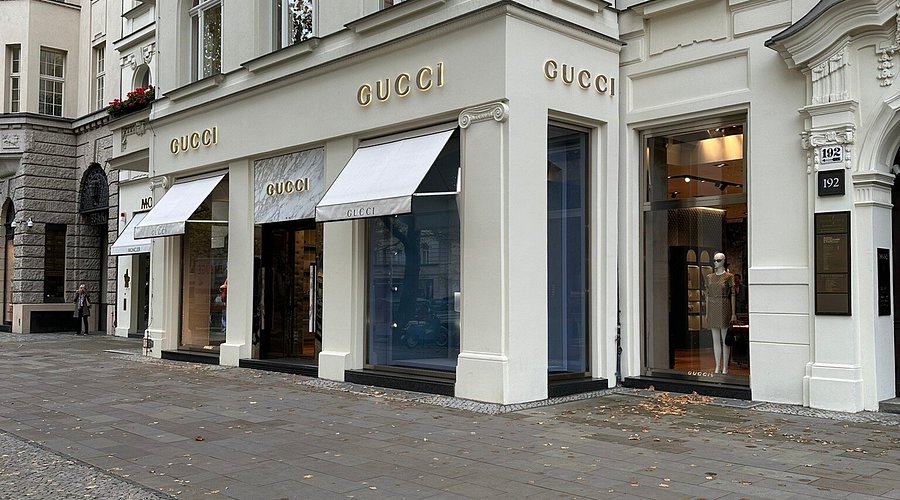From Tuscan Vineyards to Martian Soil Rights the New Era of Prestige Property Ownership
By
Sophie Moore
Last updated:
September 22, 2025
First Published:
September 22, 2025

Photo: WineNews
For centuries, land ownership has been the clearest marker of wealth and influence. Aristocrats flaunted estates in Tuscany, châteaux in France, and sprawling ranches in the Americas as proof of legacy and power. Today, however, the wealthy elite are expanding their horizons beyond Earth itself. Property ownership has entered an entirely new era where vineyards on rolling hills compete with contracts for Martian soil rights as the ultimate symbols of prestige.
Why traditional estates still matter
Classic properties like Tuscan vineyards continue to hold immense allure. They embody heritage, history, and the sensory romance of culture. A vineyard is not just land but a living narrative of tradition, producing wines that carry the owner’s signature across generations. For wealthy families, such estates still represent timeless prestige, grounding them in a sense of continuity with the past.
The leap toward extraterrestrial property
Yet alongside these historic estates, a futuristic parallel is emerging. Space agencies and private companies are beginning to explore frameworks that allow individuals to claim usage rights over extraterrestrial land. Though official ownership laws remain complex, wealthy pioneers are already investing in early opportunities that secure their stake in Martian soil or lunar territory. For them, prestige is no longer bound to Earthly soil but extends to the cosmos.
Symbolism beyond material value
To own land on Mars is not about farming crops or building immediate settlements. It is about symbolism. It is the twenty first century equivalent of planting a flag on unexplored territory. Just as aristocrats once prided themselves on controlling fertile valleys, the ultra wealthy of today find pride in holding claims to soil on distant planets, signaling that their influence stretches beyond Earth itself.
Blending heritage with futurism
What makes this trend fascinating is the contrast it produces. On one hand, wealthy families sip vintage wines grown in Tuscan sunlight. On the other, they display certificates granting them rights to Martian acreage. This juxtaposition reflects a lifestyle where tradition and futurism coexist, where prestige is measured by both ancient heritage and futuristic vision.
The legal complexities
Unlike traditional land ownership, extraterrestrial property is complicated by international treaties that prohibit sovereign nations from claiming celestial bodies. However, legal loopholes and private contracts are emerging that allow for usage rights, mining claims, and symbolic ownership structures. Billionaires are eager to navigate these complexities, knowing that early claims may one day become priceless assets.
The role of technology in legitimizing claims
Blockchain technology is playing a surprising role in this new era of property ownership. Digital ledgers are being used to record and certify extraterrestrial land claims, giving them an element of permanence and security. Just as deeds and titles once validated ownership of castles and estates, blockchain is becoming the new notary for space era assets.
The cultural impact of owning beyond Earth
Owning Martian soil rights is more than a business transaction. It represents a cultural shift in how humanity views territory. Wealth is no longer tied exclusively to geography or resources but to the audacity of claiming the unimaginable. For the elite, it is not only about possession but about being seen as visionaries leading humanity into its next chapter.
Environmental and ethical questions
As with ocean sanctuaries and genetic flora, extraterrestrial ownership raises ethical debates. Should space, considered humanity’s shared frontier, become privatized by the wealthy? Environmentalists and ethicists caution against exploitation before humanity even sets foot on Mars. Yet for billionaires accustomed to shaping history, these concerns do little to slow their pursuit of symbolic dominance.
The next frontier of prestige
From vineyards rooted in ancient soil to contracts written for Martian dust, the arc of prestige property reflects the boundless ambitions of the ultra wealthy. What was once measured by acres of farmland is now expanding to planetary scales. The future of ownership may soon be defined not only by what lies within earthly fences but also by what stretches across the infinite expanse of the universe.
Subscribe to unlock premium content
Sed at tellus, pharetra lacus, aenean risus non nisl ultricies commodo diam aliquet arcu enim eu leo porttitor habitasse adipiscing porttitor varius ultricies facilisis viverra lacus neque.
A comprehensive guide on Agile development

10 Productivity tools that are worth checking out

Top 7 Must have management tools for productivity

A comprehensive guide on Agile development

10 Productivity tools that are worth checking out

A comprehensive guide on Agile development








.png)
